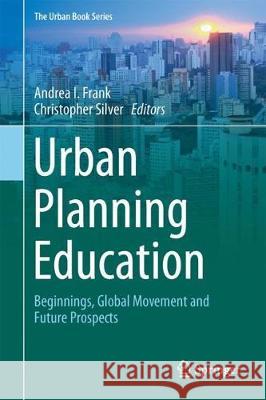Urban Planning Education: Beginnings, Global Movement and Future Prospects » książka
topmenu
Urban Planning Education: Beginnings, Global Movement and Future Prospects
ISBN-13: 9783319559667 / Angielski / Twarda / 2017 / 345 str.
Kategorie BISAC:
Wydawca:
Springer
Seria wydawnicza:
Język:
Angielski
ISBN-13:
9783319559667
Rok wydania:
2017
Wydanie:
2018
Numer serii:
000789133
Ilość stron:
345
Waga:
7.33 kg
Wymiary:
23.5 x 15.5
Oprawa:
Twarda
Wolumenów:
01











